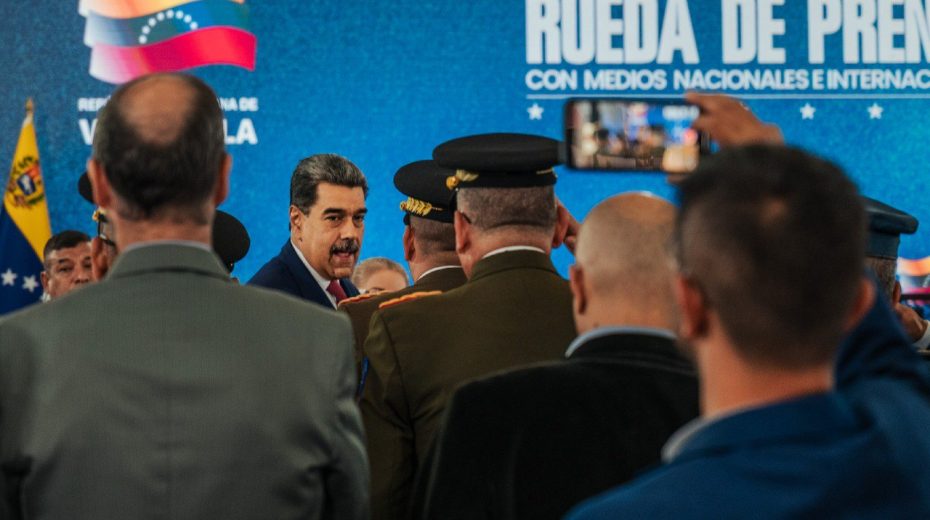
The U.S. seems poised to launch its largest intervention in Latin America in at least 35 years, as military assets continue to accumulate in the theater surrounding Nicolás Maduro’s Venezuela.
Under the Trump administration, the removal of Maduro has become a clear priority, with the leader labelled an illegitimate narcoterrorist responsible for extensive criminal activities impacting the United States.
Although Maduro’s dictatorship has undeniably inflicted suffering and economic ruin on Venezuelans during his lengthy tenure, his authority is not necessarily the absolute worst outcome for the country.
This might sound surprising given Venezuela’s dire situation under his rule: the economic meltdown, the secret police’s brutal repression, widespread hunger, and a massive exodus of refugees seeking safer living conditions throughout the hemisphere. Still, history teaches us that misery often has further depths—circumstances can almost always deteriorate more.
The real danger lies with the cartels. Presently, Venezuela mainly serves as a transit hub within drug trafficking networks. Daily, thousands of pounds of Colombian cocaine pass through Venezuelan territory en route to the highly profitable American market, frequently transported by air to unmarked runways in Central America. Maduro’s regime is known to tacitly allow and occasionally assist this trafficking in exchange for a share of the earnings. Yet the cartels have not established firm territorial control—they neither cultivate coca nor operate cocaine production inside Venezuela. Should they become too aggressive, Maduro is willing to deploy state power to suppress them, as he does not want organized crime creating rival centers of authority.
However, this balance is not guaranteed. Venezuela’s conditions offer no natural barriers to the cartels embedding themselves as quasi-governmental forces able to challenge central authority and engage in prolonged conflict, similar to what has transpired for decades in parts of Colombia and lawless areas of Mexico. Colombia’s struggle with narco-insurgents nearly tore the nation apart during the late 20th century, and only through a harsh and lengthy campaign did it restore a semblance of control and sovereignty.
If Maduro’s government falls—whether through covert action or direct U.S. military intervention—the last major obstacle to cartel expansion (albeit maintained through widespread corruption and compromises) would vanish. Any successor government, even supported by American troops, would be hard-pressed to assert effective control over Venezuela’s vast and remote regions, especially the Amazon basin in the south.
This vacuum would create a prime opening for groups like the National Liberation Army (ELN), which holds significant territory across the border and regularly moves through Venezuelan lands between skirmishes with Colombian forces. Any upheaval toppling Maduro’s regime would likely empower these cartels, given their proximity and their existing ties with portions of the Venezuelan military and government loyal to Maduro. Remaining Bolivarian revolution supporters might resort to guerrilla warfare, and the ELN and similar groups would provide an ideal platform for such insurgency, gladly absorbing remnants of the old regime while extending their influence across the Colombia–Venezuela frontier.
While Maduro’s rule is harsh, it pales compared to the harshness of cartel warfare. American intervention could trigger a prolonged chavista retreat into the Amazon, leading Venezuela into a devastating, narcotics-driven civil conflict potentially lasting decades. It would almost certainly draw U.S. forces into some of the most brutal guerrilla warfare on Earth, with casualties returning home in coffins.
For this reason, a smooth and peaceful transition away from Maduro offers the best outcome for U.S. interests in Venezuela. Though this approach lacks the spectacle of a forceful overthrow and allows key offenders to avoid punishment, it prevents a power vacuum during democratization and minimizes the likelihood of prolonged guerrilla warfare—a scenario counterproductive to American goals.
Fortunately, peaceful transition seems feasible. The Venezuelan government reportedly presented the Trump administration with a proposal for Maduro to step aside gradually at the end of his current term, a surprising sign of both intense U.S. pressure and Maduro’s contemplation of an orderly exit while conditions remain somewhat manageable. The plan was declined—likely because the timeline postponed change until the conclusion of Trump’s second term—but the very offer suggests that further negotiation could yield a more acceptable agreement.
Reaching such a deal would mark a foreign policy success for the Trump administration in Latin America and diminish serious risks for Venezuelans and any American personnel involved in interventions.
Original article: theamericanconservative.com




